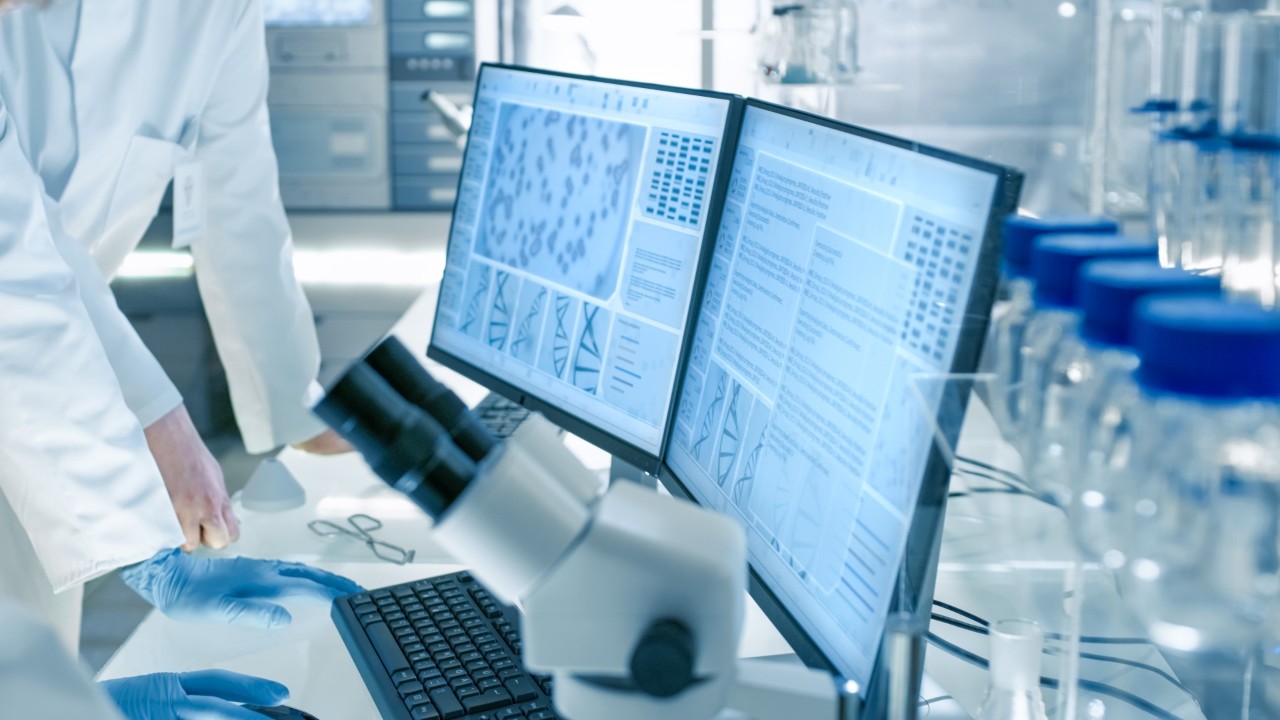
Artificial Intelligence
How AI is revolutionizing drug discovery at Lundbeck
In this article, Henrik Keränen, Senior Manager Molecular Modelling & Structural Biology, explains how AI is being used to accelerate drug development, from generating novel molecules to predicting protein structures, and how these approaches are revolutionizing drug discovery at Lundbeck.
In our journey from molecule to patient in the drug discovery process, Henrik's team operates at the earliest stage of research. They are dedicated to inventing molecules that have the potential to address unmet medical needs and improve the lives of individuals affected by specific brain diseases.
“In the world of drug discovery, AI has taken center stage. Through external collaborations and internal innovation, we are leveraging groundbreaking developments in using AI methods to tackle complex problems and expedite the drug discovery process. Our brilliant scientists are utilizing cutting-edge AI techniques to drive drug discovery progress,” Henrik explains.
Small molecule drug discovery: unleashing the power of generative models
One remarkable application of AI in drug discovery is in the field of Medicinal Chemistry. By harnessing the capabilities of generative models, computers can create virtual small molecules as inspiration to scientists in deciding the next molecules to make. These molecules are designed with specific properties in mind, presenting the potential to become the next promising drug candidates. How does this work?
Feedback loops play a crucial role. The AI machinery learns from past successes and failures, digesting information on measured properties of molecules already made to predict new virtual molecules. This data-driven approach enables the generation of innovative ideas for molecules that exhibit improved properties.
AI in biologics: unveiling the secrets of protein structures
AI's impact isn't confined to small molecules; it's also currently revolutionizing the realm of biologics. Biologics involve the study of large complex molecules such as antibodies. AI-based protein structure predictions are changing the game, allowing researchers to understand the intricate architecture of the 3D-structure of these molecules early in the biotherapeutic discovery.
“This predictive power becomes even more potent when coupled with classical modeling techniques. By deciphering the structure of antibodies with greater accuracy, researchers can design the next generation of antibodies more effectively,” Henrik says.
“On the short term, we are looking to establish a partnership to drive dedicated AI approaches on selected portfolio program(s) to harvest on the external breakthroughs. And on the long term our goal is to transform the productivity of small molecule and biologics-based drug discovery.”
Henrik Keränen, Senior Manager Molecular Modelling & Structural Biology
AI and drug discovery – a marriage to last
The marriage of AI and drug discovery is a story of transformation. From generating virtual molecules for drug candidates to unraveling the mysteries of protein structures, AI's impact is undeniable. As we continue to explore new possibilities and refine existing techniques, the pharmaceutical industry stands on the precipice of unprecedented breakthroughs.